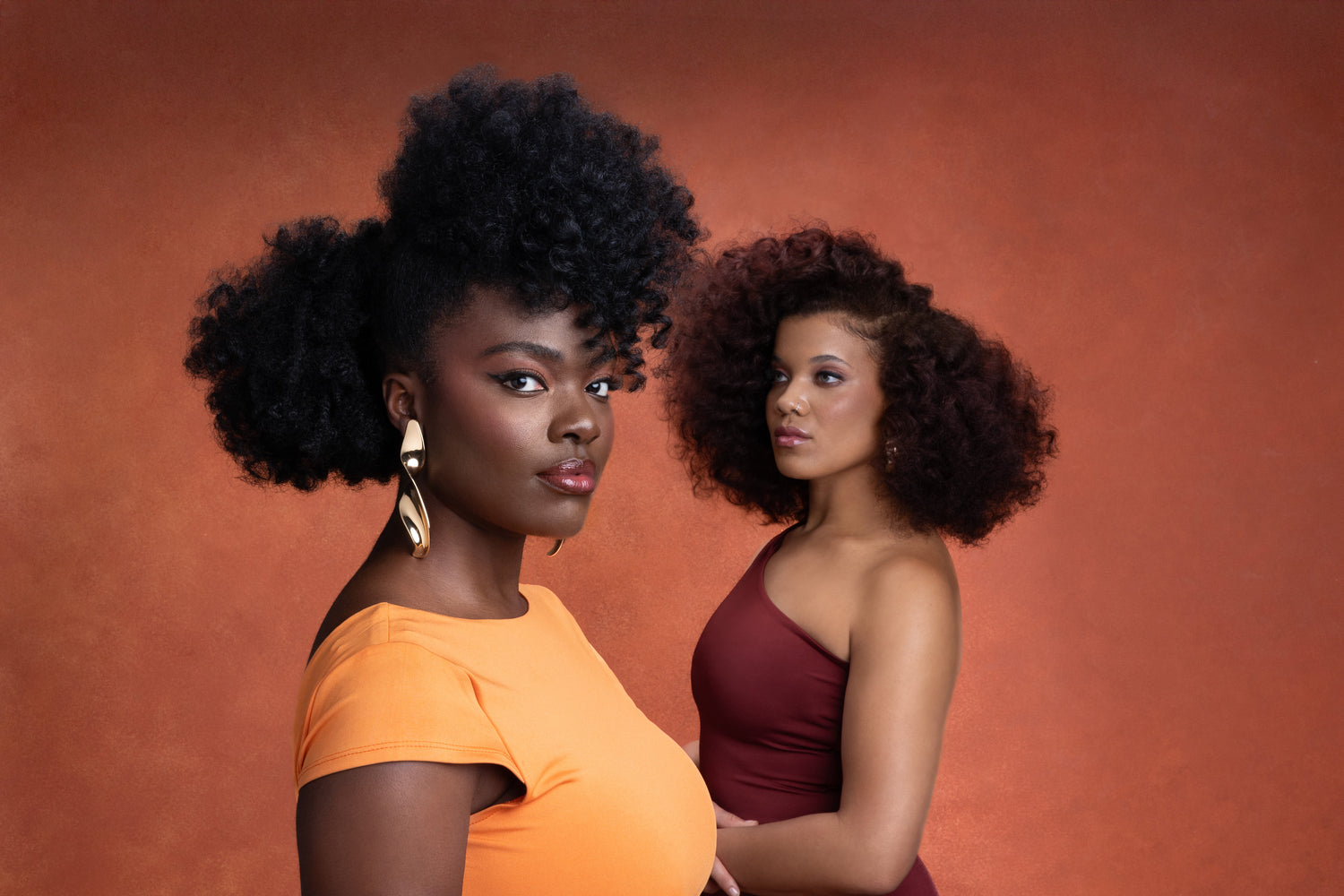There are a lot of things that factor into having healthy hair, especially when it comes to curly and afro hair. So if you're on the hunt for the best healthy hair habits to adopt right now, you've come to the perfect place. Discover how to get healthy hair with our 16 expert tips.
Eat With Your Hair In Mind
If you’re keen to have healthy and happy hair as well as our general health, it’s important to have a healthy and balanced diet. Make sure that your hair and your body gets the nutrients it needs to flourish by eating more fruit and veg, and try to avoid sugary, fatty, over processed foods.
Take Your Supplements
As well as eating a balanced diet, we also recommend making sure that you are getting enough vitamins and minerals. Having a vitamin deficiency makes people more likely to experience hair loss and many other problems. Vitamin C ensures hair growth, renews tissues and helps your body to absorb iron (which transports oxygen to your hair follicles), Vitamin B is responsible for the overall health of your hair, and vitamin E stimulates circulation on the scalp.
Drink More Water

Achieving healthy hair is practically impossible without water, so make sure you try to drink your eight glasses of water a day. Or at the very least, try to lessen the amount of fizzy and caffeinated beverages you have.
Ditch Heat

Say goodbye to heat damage and switch from blow drying to using a microfibre towel turban. Going heatless and using a microfibre towel will absorb the excess water quickly, you can also use no-heat straightening techniques to stretch afro hair.
Cleanse Your Scalp Regularly
Washing your afro hair is just as important as moisturising and styling it. A balance between removing and adding afro hair care products will help you build a healthy hair care regimen and lead to hair growth. To cleanse your hair and scalp of debris and dead skin you should shampoo your hair every 7-10 days (or more often if you are active) even during protective styling.
Make The Change To Sulphate-free
Sodium lauryl sulphate (SLS) can cause skin irritation especially for eczema sufferers. It is extremely drying on afro hair as it strips the hair of its natural oils. So why not switch to a mild, sulphate-free shampoo? Our shampoo, Swish, was formulated to be gentle enough to use once a week. It will give your hair a crisp clean and removes buildup without stripping your hair of moisture.
Properly Cleanse Your Scalp
As well as making sure to wash your hair regularly, also make sure you wash your scalp using a gentle, circular movement. This will dislodge dirt, encourage blood flow to the scalp and help you avoid itchy scalp issues.
Get Moving!

Exercise is great for healthy hair as it increases blood circulation, this is great because this helps much-needed nutrients reach our scalp and hair follicles.
Give Up Silicones
The downside to silicones is that they can leave your hair dry, not to mention, they can cause irritation to the scalp, don’t dissolve in water and aren’t environmentally friendly.
Luckily, there is an alternative: using a silicone-free conditioner. Our conditioner, Swirl, which is silicone-free and still provides great slip making detangling easy. Just remember to focus your conditioner on your hair (mid lengths and ends) and keep your shampoo focused on your scalp.
Dust/Trim Your Hair
OK, this one is a bit of a cheat because trimming only removes damaged hair and it won't "make your hair grow" but it will make your hair instantly look and feel healthier. So make sure your trim or dust your hair to get rid of any split ends.
Inspect The Ingredients of Your Products
Approximately, 80% of black hair products on the market contain harmful ingredients. These toxins have proven links to a wide array of diseases, which are prevalent in the community. In an effort to further educate and protect our community from such health hazards, we have produced a blog post dedicated to learning about ingredients in Afro hair products.
Look out and avoid products that have sulphates, parabens, silicones or phthalates (FYI all of our products are free from these nasties!).
Treat Your Hair Like Silk

We want to avoid damaging our hair at all costs and one way to do this is to treat your hair like it’s precious silk. Use your fingers to first comb or detangle your hair, have a look at your accessories and get rid of any poor or broken tools and accessories that could easily cause your hair to break.
Moisturise Your Hair Effectively
Moisturising your afro hair is vital because it helps prevent breakage because dry hair is prone to breakage. The LOC/LCO method comes into play, this is the layering of products (liquid, oil and cream) to effectively combat dryness and maximise hydration.
Rock Protective Styles
Protective styles include braids, weaves, wigs, twists, and buns. Simply put, any style where the ends of your hair are tucked away. Wearing protective styles can be a great way to grow longer, healthier natural hair when properly maintained.
Protect Your Hair At Night
Cotton is super absorbent and basically robs you of all the moisture that you’ve been working on locking into your hair. Protect your hair with a simple night routine and trade your cotton pillowcase for a satin or silk one or get yourself a beautiful Afrocenchix bonnet.
Look After Your Scalp
We always stress the importance of a balanced hair care routine because it's crucial for a healthy scalp and in turn healthy hair growth. We like to think of our scalp as an extension of our face, which is why we recommend regularly and properly cleansing and moisturising your scalp.
More Articles:
The Ultimate Black & Natural Hair Glossary

